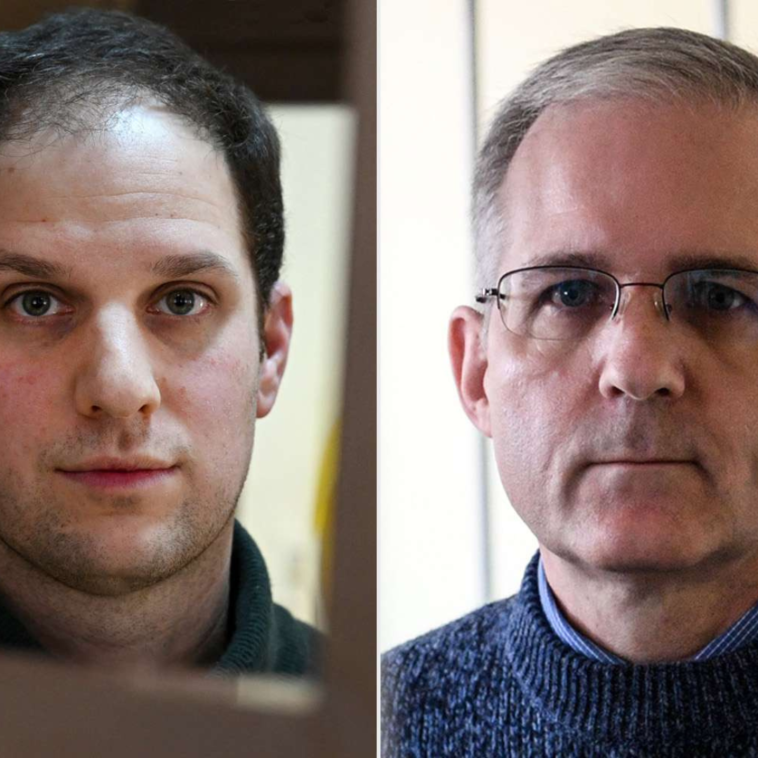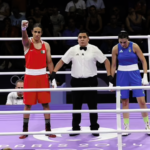Ankara, Turkey – In an extraordinary move, Wall Street Journal reporter Evan Gershkovich has been released after spending 16 months in a Russian prison. The release was part of a broad prisoner exchange between Russia and Western nations, which took place at an airport in Ankara, Turkey. This marks the most extensive swap of its kind in decades, involving 24 adults imprisoned in seven different countries.
The exchange included not only high-profile American detainees but also key opposition figures and spies from Russia, illustrating the complex and multifaceted nature of international diplomacy.
Key Figures in the Swap
Among those freed by Russia were:
– Paul Whelan: A former U.S. Marine arrested in 2018 on espionage charges. His detention has been a focal point of U.S. diplomatic efforts for years.
– Ilya Yashin: A prominent Russian opposition figure known for his vocal criticism of President Vladimir Putin’s regime. Yashin’s release is seen as a significant gain for Russia’s pro-democracy movement.
The prisoners released by the West included:
– Vadim Krasikov: A convicted Russian assassin responsible for the 2019 killing of a Chechen former separatist fighter in Berlin. His release underscores the complex negotiations involved in such a swap, reflecting significant political and diplomatic maneuvering.
Diplomatic Implications
The swap represents a significant diplomatic achievement for several leaders, each with distinct motivations and potential risks:
President Joe Biden
President Biden has long pledged to bring home imprisoned Americans and support Russia’s embattled pro-democracy movement. The release of Gershkovich and Whelan is a notable victory for his administration, likely to bolster his standing domestically and internationally. However, the exchange also raises questions about the precedent it sets for future negotiations and the potential encouragement of further hostage-taking by adversarial nations.
President Vladimir V. Putin
For President Putin, the deal allows him to highlight his loyalty to Russian agents arrested abroad, bolstering his image among nationalists and security services. However, the release of opposition figure Ilya Yashin could energize Russia’s moribund, exiled opposition, presenting a potential internal political risk.
Chancellor Olaf Scholz of Germany
Chancellor Scholz’s decision to release Krasikov marks a significant political leap, reflecting Germany’s role in facilitating the complex exchange. The move could have broader implications for Germany’s relations with both Russia and its Western allies, navigating the delicate balance between justice and diplomacy.
The Wall Street Journal’s Efforts
Since Gershkovich’s arrest in March 2023, The Wall Street Journal has continuously advocated for his release, steadfastly denying the espionage charges against him. The organization has employed a multifaceted strategy to keep his detainment in the public eye and maintain pressure on both governments:
– Social Media Blitzes: The Journal launched extensive social media campaigns using hashtags like #IStandWithEvan to generate awareness and solidarity.
– Letter-Writing Campaigns: Mobilizing readers and supporters to write letters of support to Gershkovich and his family.
– 24-Hour Read-a-Thon: A continuous reading event featuring Gershkovich’s reporting to highlight his contributions to journalism and keep his story alive.
– Public Demonstrations: Organizing events such as runs and swims to symbolize the ongoing fight for his freedom.
Emma Tucker, the editor in chief of The Journal, emphasized the newsroom’s relentless efforts to keep Gershkovich’s plight in the headlines, saying, “We used every grim milestone as a moment to organize publicity and get Evan back into the headlines.”
Reactions and Statements
Committee to Protect Journalists
Jodie Ginsberg, the chief executive of the Committee to Protect Journalists, called for a broader focus on press freedom, stating, “The reported release is welcome – but it does not change the fact that Russia continues to suppress a free press.” Ginsberg’s comments highlight the ongoing struggle for journalistic freedom in Russia and other repressive regimes.
U.S. Political Leaders
Representative Michael McCaul, chairman of the Foreign Affairs Committee, expressed both relief and caution. “If these reports are true, I am thrilled Evan, Paul, Alsu, Vladimir, and many others who have been illegally held by Putin’s regime are finally coming home to their families.
But I remain concerned that continuing to trade innocent Americans for actual Russian criminals held in the U.S. and elsewhere sends a dangerous message to Putin that only encourages further hostage-taking by his regime.”
The Road Ahead
While the release of Gershkovich and others is a cause for celebration, it also underscores the ongoing challenges in international relations and the fight for press freedom. The implications of this historic swap are far-reaching:
– For International Diplomacy: The exchange sets a complex precedent for future negotiations involving political prisoners and hostages. Nations must navigate the fine line between securing the release of their citizens and not incentivizing further unlawful detentions.
– For Press Freedom: Gershkovich’s release is a victory for journalistic freedom, yet it also serves as a stark reminder of the dangers journalists face in repressive regimes. The international community must continue to advocate for the safety and freedom of journalists worldwide.
-For Russia’s Opposition Movement: The release of figures like Ilya Yashin could invigorate the opposition, potentially reshaping the political landscape within Russia. However, the challenges facing the pro-democracy movement remain immense.
As the global community reacts to this historic swap, the broader implications for diplomacy, justice, and press freedom will continue to unfold. The delicate balance of securing the release of detained individuals while maintaining international principles of justice and human rights remains a critical challenge.





GIPHY App Key not set. Please check settings